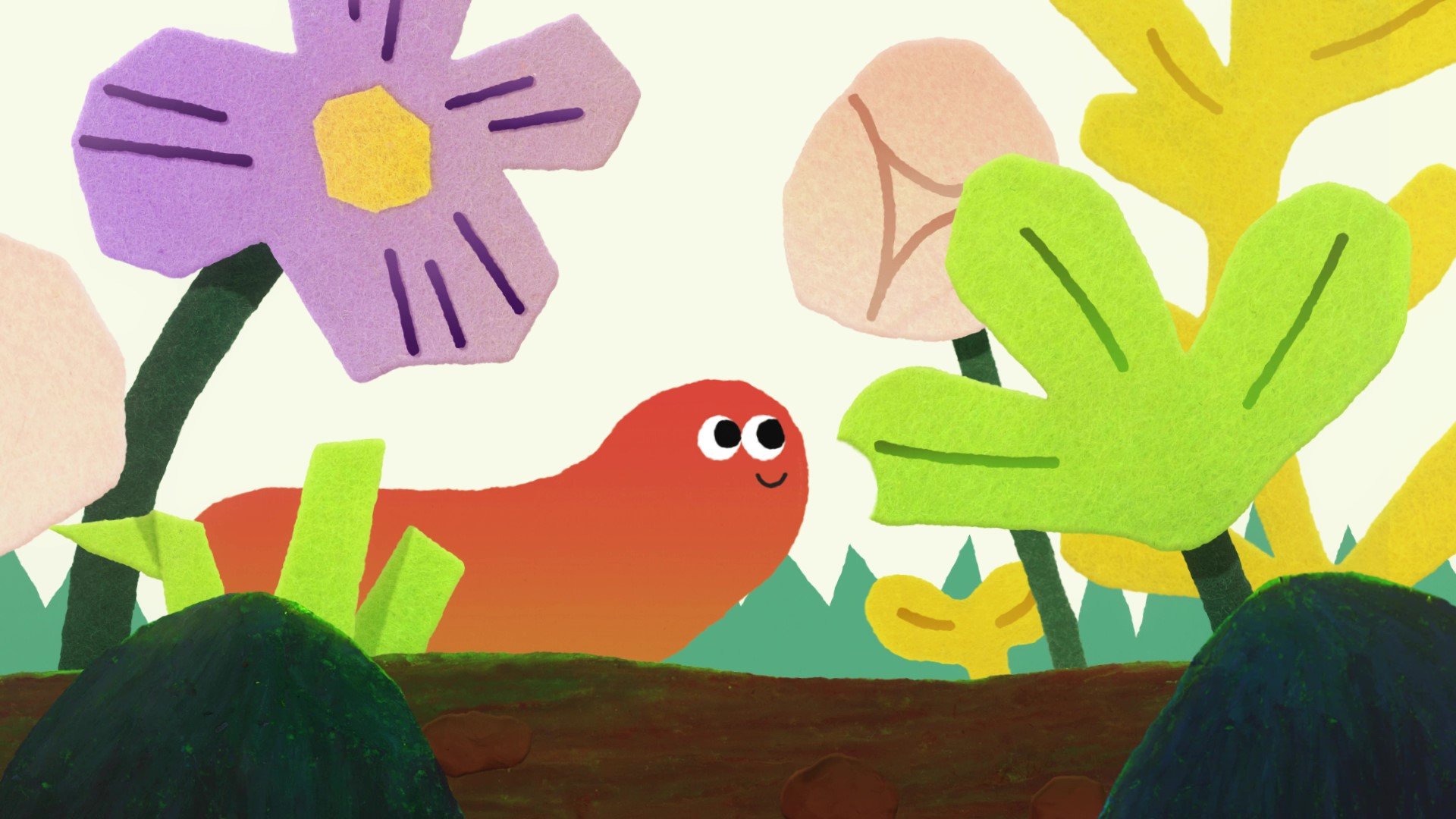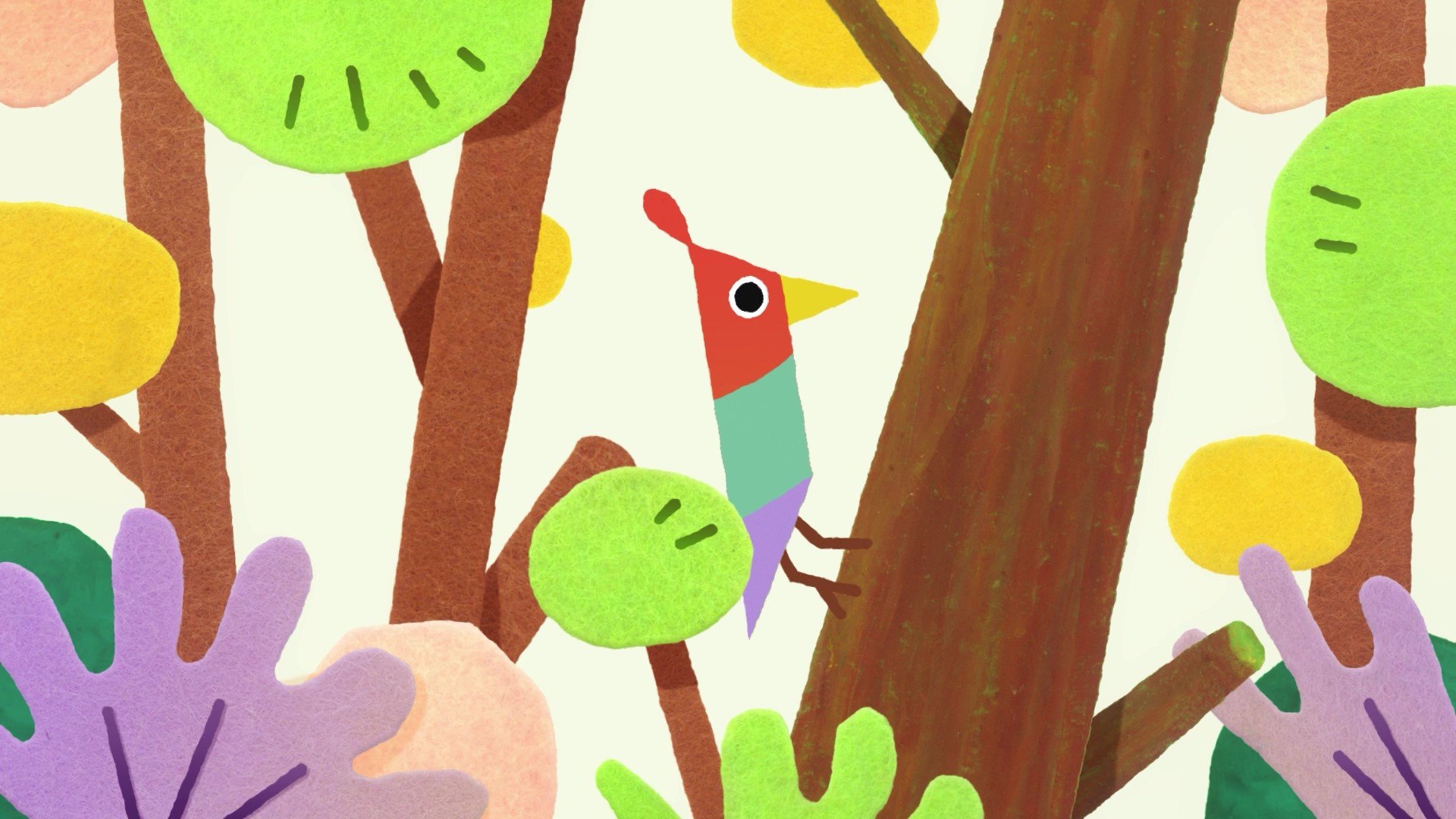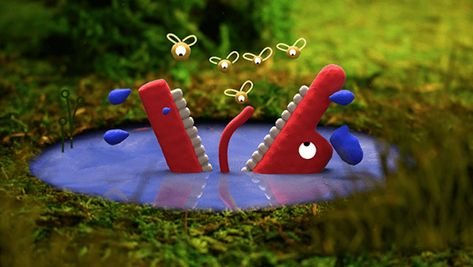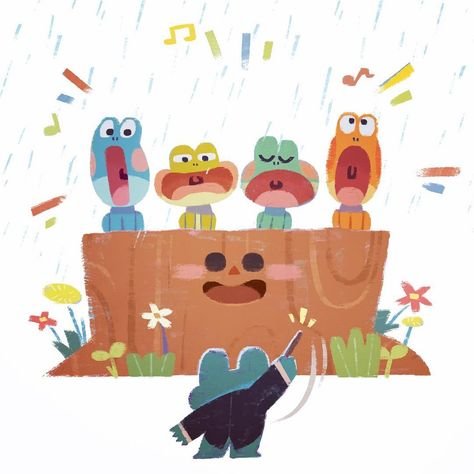sesame Street
Collaborator: Yixuan Shi
This is a mock project for Sesame Street, where my task is to create an animated segment. In this project, I combine my knowledge of 2D and 3D animation as well as hand-drawing skills to create a whimsical, tactile, and fun animation.
Design
Educate children about the animals that make sounds in the forest, such as caterpillars, frogs, and woodpeckers. Each animal will be placed in a small environment. Along with the song, animal sounds will appear like drum beats.









Research
Sesame Street is an American educational children's television series that combines live-action, sketch comedy, animation, and puppetry.
It has designed many cute characters and uses a lot of vibrant colors, making its animations popular among children.

References from Pinterest


Pitch directions
The first direction focuses on the hand-made feeling. The plants around the animal are made of felt; the rock uses using crayon texture.
For the second direction, the background is a live photo scene, the bird’s body is in 3D, the rest of the body is 2D painting, and the leaves are made from color cardstock.

Direction1 textile style with felt

Direction2 3d + illustration
Behind the Scene
We used wool felt, cardboard, and clay to build different environments in the forest. For example, felt is for flowers and trees; cardboard is for soil; clay is for smaller elements, like frog’s blush.


Mixed Media
Hand drawn animation
For the caterpillar, frog, snake, and bee animations, we chose to use the hand drawing skill with 12 fps. This low frame rate hand-drawn animation will look more dynamic. Also, the rough-edged shapes created a soft, child-friendly appearance.
Stop motion
When I was in kindergarten, I often played colorful clay in craft classes. To make the visual images more interesting, we tried stop-motion animation for the trees, frog’s blush, and soil.
3D animation
We utilized Cinema4D to create 3D elements that visualized the sounds made by the animals.
2D animation
The animation of the woodpecker was made by the shape layer in AE. When it is pecking the wood, the shape layer can make very exaggerated deformations.
Live action
This ripple video was used in the frog scene. It is very subtle and can show the slow flow of the water.
Music + Sound effect
I composed the melody for this piece, collaborating with Kelly Warner, who assisted in composing the music and incorporating the actual voices of each animal. This animation aims to educate children about the distinctive sounds made by different animals.







